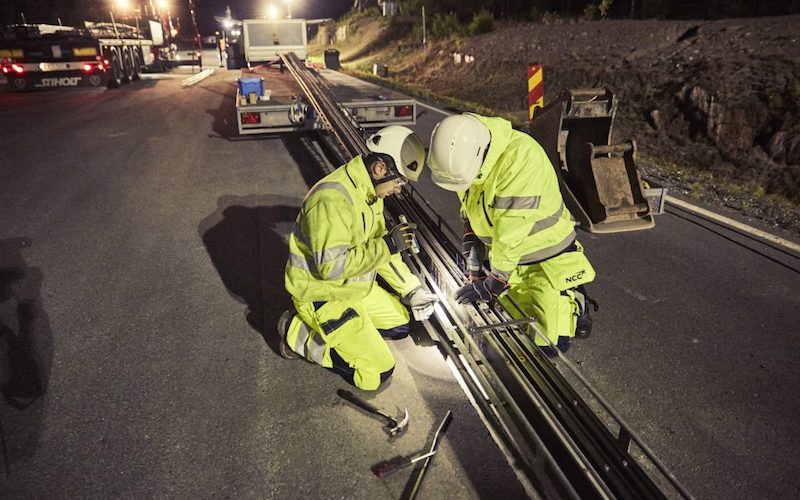Sweden is set to build the world’s first permanent electrified road for Electric Vehicles (EVs) to charge while driving which could pave the way for more sustainable transport solutions, as it is expected to lead to an expansion of an additional 3,000 km of electric roads in the country by 2045.
The move comes as the European Union (EU) recently passed a landmark law that requires all new cars sold to have zero CO2 emissions from 2035.
“We think the electrification solution is the way forward for decarbonizing the transport sector and we are working with a number of solutions”, said Jan Pettersson, Director of Strategic Development at Trafikverket, the Swedish transport administration, while Speaking to the news agency.
Sweden has already pioneered several pilot projects, including the world’s first temporary electric road, and the chosen motorway, European route E20, a 21km stretch that connects Hallsberg and Örebro, located in the middle of the country’s three major cities, Stockholm, Gothenburg, and Malmö.
The electrified road is expected to provide an efficient charging solution for EVs, allowing them to recharge while driving, and travel longer distances with smaller batteries, eliminating the need for frequent stops at charging stations.
E-motorway project
The electrified road project on the E20 motorway is currently at the procurement stage and is expected to be completed by 2025. The charging method for the road has not been finalized, but there are three options being considered:
- Catenary system, which uses overhead wires to provide electricity for heavy-duty vehicles;
- Conductive charging, which uses a pad or plate on the road to wirelessly charge the vehicle; and
- Inductive charging, which uses buried equipment to send electricity to a coil in the electric vehicle.

Previous electric road projects
Trafikverket, the Swedish Transport Administration, has been exploring different options for electric road technology, with four solutions having been tested so far.
The first option involved overhead power lines that charged trucks via pantographs on their roofs, and the four-year trial along a two-kilometer stretch of the E16 highway ended in 2020.
The second alternative is the eRoad Arlanda project, which utilizes a movable arm on vehicles to pick up electricity from an electric rail embedded in the road, and the two-kilometer test began in 2018. The eRoadArlanda project, which is part of the Swedish Transport Administration’s pre-commercial procurement of innovation, is working to make electrified roads a reality.
Meanwhile, the Evolution Road project in Lund, southern Sweden, is experimenting with a conductive connection between the electric road and the vehicle through a pick-up under the vehicle that slides along electric rails on top of the road to transmit power and charge the batteries.
The Smartroad Gotland project on the Baltic Sea Island of Gotland uses an inductive system where copper cords sunk into the road transmit electricity to receivers under the vehicle’s chassis, and the three-year test is set to conclude in 2022. This project is a demonstration of a1.6 km long electric road situated between the airport and town center of Visby on the idyllic island of Gotland, a Swedish eco-municipality.
Sweden – world leader in electrified roads
Sweden is a pioneer of electric road systems and aims to reduce greenhouse gas emissions from domestic road transport by 70% from 2010 to 2030.
Sweden unveiled its national roadmap for electric road systems in 2017 to reduce the dependency of heavy vehicles on fossil fuels and reduce carbon dioxide emissions.
The Swedish authorities aim to electrify roads utilizing existing infrastructure to reduce energy consumption since road traffic in Sweden accounts for one-third of carbon emissions, and a large part is freight traffic. It is estimated that two-thirds of truck transportation in Sweden could be carried out on electrified roads by 2030.

